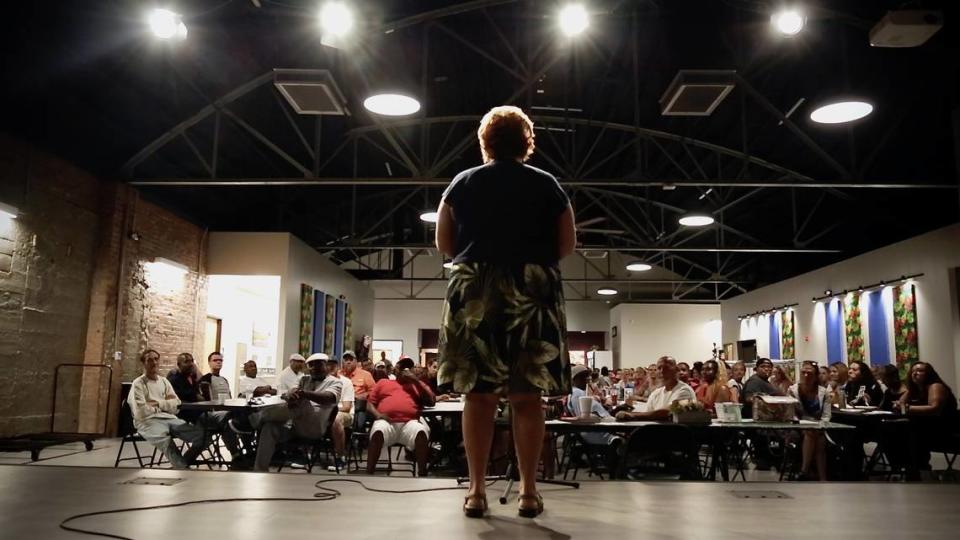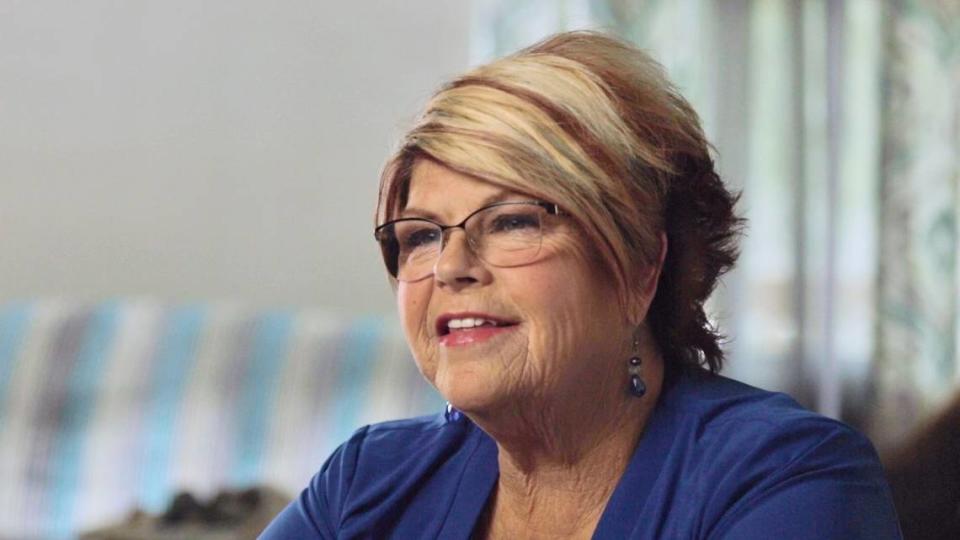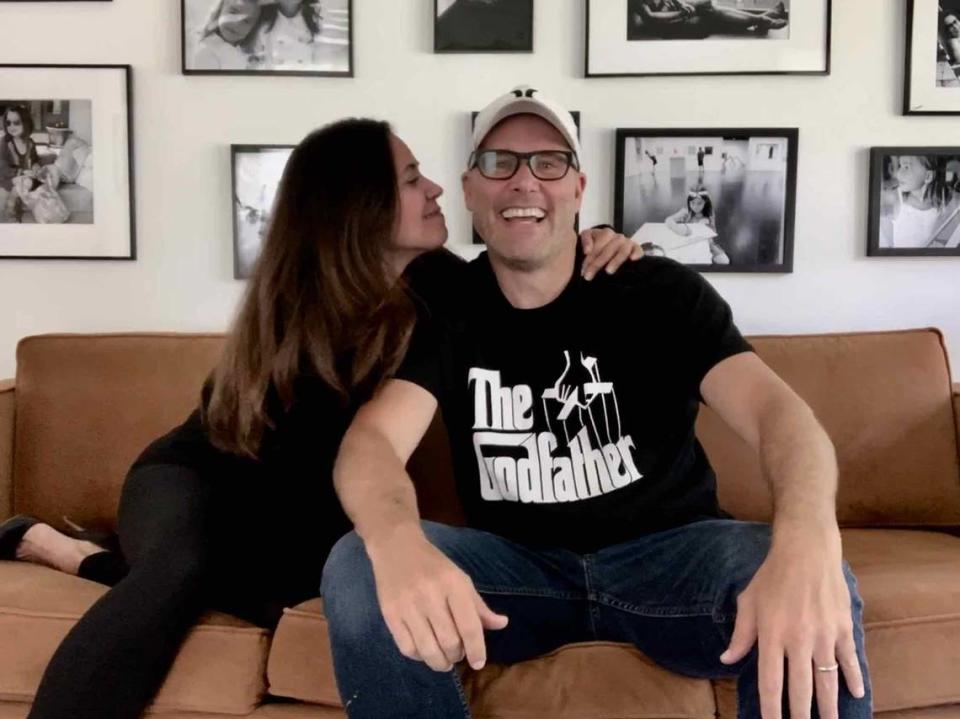KC woman’s ‘incredible story’ of addiction and healing is a movie, debuting this week
Upon meeting the optimistic, boundlessly energetic Bobbi Jo Reed, it’s difficult to envision the pain that shaped her life.
Homeless. Addicted to drugs and alcohol. Turning tricks. Kidnapped. Raped. Abused.
“When I was out on the street, the one thing I didn’t have was hope,” Reed says.
Through hope, hard work and relentless faith, Reed turned her life around. Then the Kansas City, Kansas, native began providing the same life-changing impact to others in the community. Now, a new feature-length documentary is bringing her inspiring story to audiences across the country.
“Bobbi Jo: Under the Influence” premieres at 6:30 p.m. Wednesday as part of the 25th annual Kansas City FilmFest International.
“When I’d seen the finished product, all I could think is this is going to help a bunch of people,” she says, “not just addicts or alcoholics or family members of folks that struggle with addiction. Everybody that has seen it says, ‘Man, I feel like I’m not doing enough in my world. I need to do more.’”
Reed’s fall and rise has been well-documented, through both numerous articles (including a profile in The Star) and her own 2014 memoir, “Beautifully Broken.” But this marks the first time her harrowing story has made it to the screen.
“I remember when I was homeless, I used to see this little old man who had a love seat and a mattress under the bridge. And I was envious of him. Why would anyone pick that to envy?,” she asks, shaking her head at the memory.
“Not everyone understands. I think it’s good to give people a different outlook on addictions.”
That outlook is reflected in the deeds of Healing House, a live-in addiction and treatment center Reed runs in KC’s Old Northeast. She describes it as a “faith-based recovery home.” Along with attending to emotional and spiritual needs, Healing House concentrates on pragmatic aspects as well. Reed and her staff help individuals get IDs, build resumes and meet with employment specialists.
The facility represents one more step in the road back to normalcy.
“Families won’t open up and share what’s going on with their kids because they’re scared of what it will look like for them. And I can tell you, people from good families and bad families become addicts and alcoholics,” says Reed, who grew up the daughter of a KCK policeman.
“The thing is, we can’t get better if we don’t talk about it. It’s not a shameful thing, and we have to get over that mentality or people are going to keep dying.”

Making a movie
Brent Jones, who directed “Bobbi Jo: Under the Influence,” recalls the first time he met Reed.
“A friend of mine was heading down to Healing House to do some cooking. He asked me to help out. I said, ‘Well, I’m not much of a cook, but let’s go do it.’ So we went into this little kitchen with, like, four stoves, and we made dinner for 200 people,” he says.
Then Reed walked in with “Mama” Judi Burkholder, assistant director of Healing House.
“I was like, ‘Wow, those, two are something else.’ Bobbi Jo held a meeting concerning what she expected from everybody, and I just really liked how she ran that,” Jones says. “I heard she was speaking at a church right up by my house, and I just had to go hear her story. Her testimony blew my mind. It was one of the most amazing stories I’ve ever heard.”

At the time, Jones, a veteran of Hollywood film crews, and his producer wife, Donna, had just moved back to KC from Los Angeles to raise a family. The pair were reading scripts for low-budget thrillers intended as their feature filmmaking debut project. But after hearing Reed’s tale, they shifted gears.
“I walked up to Bobby Jo and said, ‘That’s an incredible story, and I’d love to talk to you about making a film about your life,’” he says.
Jones gathered a small crew and interviewed Reed, primarily to use as reference when crafting a narrative screenplay.
“She’s just dynamic, and I realized we had a very strong character to make a film around,” he says. “When I discovered how well she came across on camera, I knew we had to make this thing happen.”
“This thing” transformed into a documentary. For the next year and a half, he chronicled Reed, Burkholder and nearly 30 individuals associated with Healing House.
“A lot of the stuff we do is make-believe,” Jones says of his day gig in commercial production. “It’s promos and selling things. I wanted to do something that was heartfelt and real.”
The most difficult part of the process came during editing, when he had to decide whose stories to keep and cut.
“These people’s lives are amazing. They come out of a very dark spot and found life again. They found peace and serenity and employment, and they discovered all these things at Healing House,” he says. “I mean, that’s not a television commercial!”
One of the key things Jones discovered during the course of the shoot was how insidious addiction is. How ingrained it becomes in people’s lives. Getting clean often appears to be an insurmountable task.
“You’ve got to want it more than anything else in the world because it takes some real work,” Jones says. “If you do really, really want it, and you’re willing to do the work, your whole life can change.”
Reed, who earned her sobriety 25 years ago, believes the most misunderstood thing about addiction is how society assumes it’s caused by weakness or a lack of moral fiber.
“People need to understand the whole disease concept,” she explains.
“Early in my recovery journey, I didn’t think it was a disease. Now through helping other people with addiction, I see that your brain chemistry changes, and you lose some power of choice. Maybe in the beginning before you were really dependent, it was the power of choice. But look at people you know with addiction problems: Why would they keep doing the same thing over and over again, expecting different results when their lives are falling apart?”
She says addiction takes away everything positive because the only goal that matters is staying drunk or high.
“When we’re in our addiction, we don’t have any hobbies. We don’t even know what we like to eat because we haven’t eaten for so long. I’ve had grown women come here that have multiple children, and they don’t know how to cook a meal or work a washing machine,” she says.
Despite the heaviness of this topic — and the ramifications of seeing such hardships displayed on the big screen — Jones encountered little hesitation from his subjects.
“Honestly, I forgot (the film crew) was there half the time,” Reed says.
“If somebody didn’t want to be filmed, that was entirely up to them. … Most of the folks that live here, they want to share their story because it brings hope to other people. They’re not a shy group; they’re proud they’re in recovery.”

KC to LA and back
Jones’ upbringing in KC was quite a bit different from Reed’s. Raised in Leawood, he grew up around cameras. His father, Bob Jones, ran Jones Productions, which made television commercials for local companies such as H&R Block, Commerce Bank, Worlds of Fun and the Kansas Lottery.
“I started working with my dad when I was 10 years old. I’d go to his sets, and he had me wrapping cables and doing lighting. When I was 15 years old, I was doing casting here in the city. Then I’d cut the casting sessions together,” the Shawnee Mission North grad remembers.
Right out of high school, Jones worked as a grip on the sci-fi comedy “Nice Girls Don’t Explode,” which was shot in Lawrence in 1986. There he met a few crew members who were moving to Los Angeles and looking for another roommate.
So in 1987 he headed out west. Soon he was employed by filmmaking heavyweights such as Steven Spielberg, John Sayles and the Wachowskis.
But 30 years in Hollywood took its toll on the Kansas native.
“The traffic became unbearable,” he says from his home in Leawood. “I’m a pretty resourceful guy, and all my shortcuts disappeared. It became really hard to move around. I just got back from a trip to Los Angeles, and let’s just say I’m very glad to be here.”
Jones claims his cinematic highlight was working as a grip on Steven Spielberg’s “Jurassic Park” sequel “The Lost World.”
“That was the most fun. We were on stage with the T-Rexes and working with (effects guru) Stan Winston. The T-Rexes weren’t real, but they were so realistic. On set, if you use your walkie-talkie, they would sort of short circuit. So we weren’t supposed to use them. But every once in a while somebody would use their walkie-talkie, and the T-Rex would shake, and you would be next to it and just jump back,” he recalls.
Are there any similarities between a T-Rex and Bobby Jo?
“Sure. They’re both entertaining and larger than life,” Jones says. “And don’t mess around with either of them.”
Jon Niccum is a filmmaker, freelance writer and author of “The Worst Gig: From Psycho Fans to Stage Riots, Famous Musicians Tell All.”

The film fest
Kansas City FilmFest International 2021 presents 165 films online April 12-18. Most stream the full week, but some are shown one-time only.
Highlights include “Transhood,” Sharon Liese’s HBO film about KC-area transgender kids at 6:30 p.m. Tuesday; “Bobbi Jo: Under the Influence” at 6:30 p.m. Wednesday; and the coming-of-age drama “Holler,” set to hit theaters in June, at 6:30 p.m. Thursday.
For more information and online passes, see kcfilmfest.org.

 Yahoo Finance
Yahoo Finance 